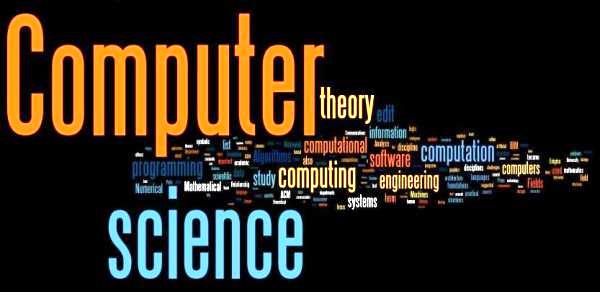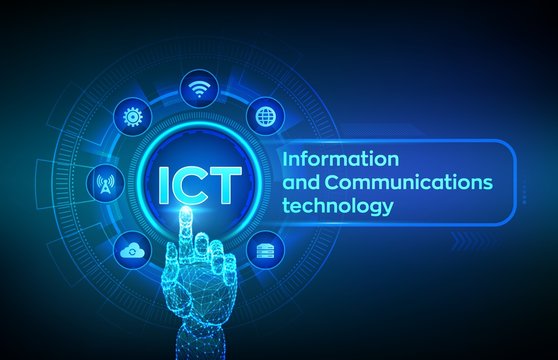WHY THIS PROGRAMME
The Masters in Information and Communication Technology (ICT) provides you with a thorough grounding in advanced computing science, together with experience of conducting a development project, preparing you for responsible positions in the IT industry.
PROGRAMME STRUCTURE
Modes of delivery of the MSc in ICT include lectures, seminars and tutorials and allow students the opportunity to take part in lab, project and team work.
CAREER PROSPECTS
Career opportunities include responsible positions, not only in the IT sector but also in many other sectors such as education, engineering, health services, financial services, government, manufacturing, retail, and transport. You will also be well qualified to proceed to study for a PhD in ICT.
ENTRY REQUIREMENTS
MASTER OF SCIENCE (M.Sc.) DEGREE IN INFORMATION AND COMMUNICATION TECHNOLOGY (ICT)
The duration of this programme shall be 18 calendar months for full time students. It shall open to candidates who are:
- Holders of a B.Sc. degree or equivalent with a minimum of Second Class (Lower Division) in ICT of any other university or equivalent institutions approved by the Nigeria government;
- Candidates who obtain a minimum of 3.0 GPA pass in the postgraduate diploma programme of Crawford University.
Requirements for Award of M.Sc. in ICT
To qualify for the award of an M.Sc. in ICT, the candidate must
- take and pass at least 30 units of course which must include all courses stipulated as compulsory;
- satisfy all other requirements in the regulations of the Postgraduate School of Crawford University.
APPLY NOW
COURSE CONTENT
M.Sc. Information Communication Technology
All students are to register for the following Compulsory courses in each semester
!st Semester
| 1 | ICT 801 | Advanced Computer Architecture | 2 | C |
| 2 | ICT 802 | Computer Networks( Operating System, Design and Communication) | 3 | E |
| 3 | ICT 803 | Database Systems Design and Management | 3 | C |
| 4 | ICT 804 | Telecommunications and Signal Processing | 3 | C |
2nd Semester
Compulsory/ Core Courses
| 1 | ICT 805 | Information Communication Technology Strategy and Management | 3 | C |
| 2 | ICT 806 | Advanced Programming Techniques | 3 | C |
| 3 | ICT 807 | Introduction to Digital Electronics | 3 | C |
| 4 | ICT 808 | Research Methodologies | 3 | R |
Third Semester
| 1 | ICT 820 | Seminar/Emerging Trends In ICT | 3 | C |
| 2 | ICT 899 | Project | 6 | C |
Students are to select maximum of two (2) electives for each semester based on their area of research interest(s)
Networking and Data Communication Option
| 1 | ICT 809 | Wireless Networks and Applications | 2 | E |
| 2 | ICT 810 | Internet Technology | 2 | E |
| 4 | ICT 811 | Microwave Networks and Antenna | 2 | E |
Information Systems Option
| 1 | ICT 812 | E-Commerce Systems and Protocols | 2 | E |
| 2 | ICT 813 | Artificial Intelligence | 2 | E |
Information and Cyber Security Option
| 1 | ICT 814 | Cyber security and IT Security Analysis | 3 | C |
| 2 | ICT 815 | Network Security and Cryptography | 3 | C |
Knowledge Representation and Management Option
| 1 | ICT 816 | Data Mining and Warehousing | 3 | E |
| 2 | ICT 817 | Data Mining Tools and Applications | 2 | E |
| 3 | ICT 818 | Big Data and Cloud Computing | 2 | E |
| 4 | ICT 819 | Business Intelligence and Analytics | 2 | E |
Not exceeding 18 units per semester .
Maximum Programme load =45 units
Minimum Units = 30 units
APPLY NOW
 COURSE DESCRIPTION
COURSE DESCRIPTION
ICT 801: Advanced Computer Architecture (2 Credit Units)
ICT 802: Computer Networks: System Design and Communication (3 Credit Units)
ICT 803: Database Systems, Design and Management (3 Credit Units)
Suggested Lab work:
Programming assignments to learn database design using CASE tools. Introduction to back-end/Server-based Relational Database Management System (RDBMS). Learning Standard SQL (interactive/embedded). Introduction and programming assignments on Front-End tools. Programming team projects to design and develop real life database systems using the learned tools.
ICT 804: Telecommunications and Signal Processing (3 Credit Units)
ICT 806: Advanced Programming Techniques (3 Credit Units)
Suggested Lab work :
Programming assignments leading to extensive practice in problem solving and program development involving the use of the various data structures implemented in the course.
- ICT 807: Introduction to Digital Electronics (3 Credit Units)
- ICT 809: Wireless Communications (2 Credit Units)
- ICT 810: Internet Technology (2 Credit Units)
- ICT 811: Microwave Networks and Antenna (2 Credit Units)
- ICT 812: E-Commerce Systems and Protocols (2 Credit Units)
- ICT 813: Artificial Intelligence (2 Credit Units)
- CSC 814: Cyber Security and IT Security Analysis (3 Credit Units)
- ICT 815: Network Security & Cryptography (3 Units)
- ICT 816: Data Mining and Warehousing (3 Credit Units)
- ICT 817: Data Mining Tools and Applications. (2 Credit Units)
- ICT 818: Big Data and Cloud Computing (2 Credit Units)
- ICT 819: Business Intelligence and Analytics (2 Credit Units)
APPLY NOW



